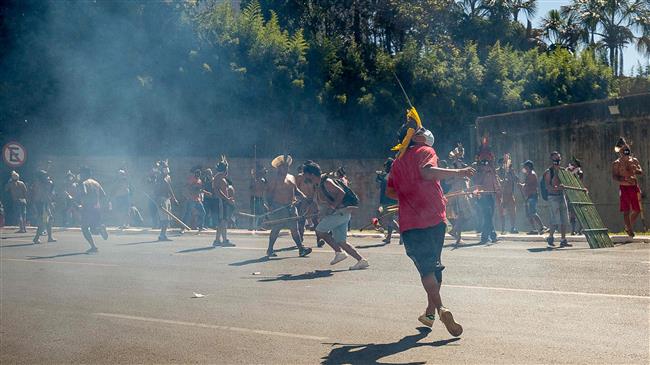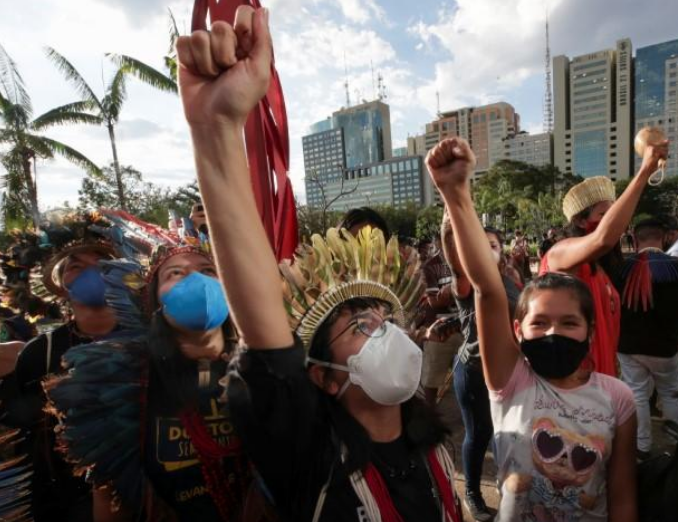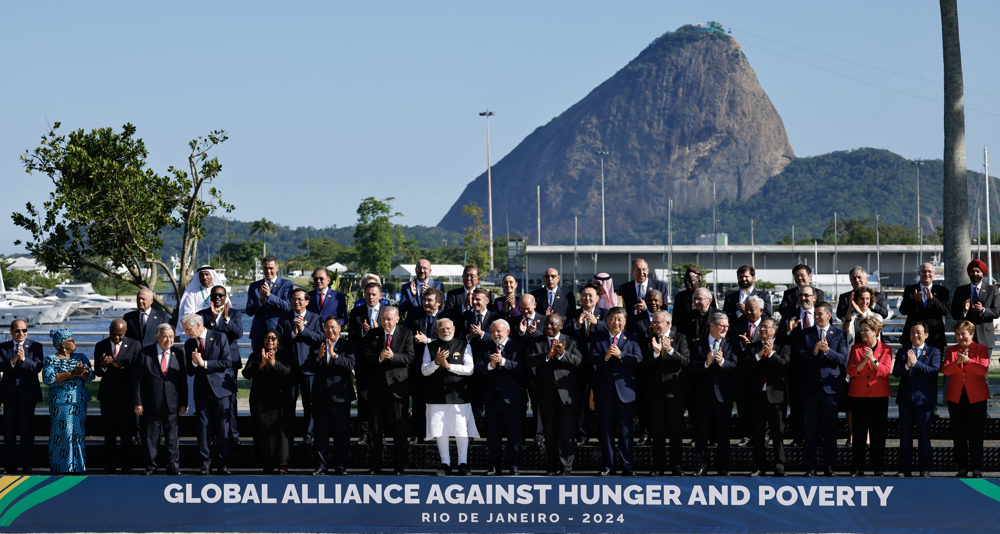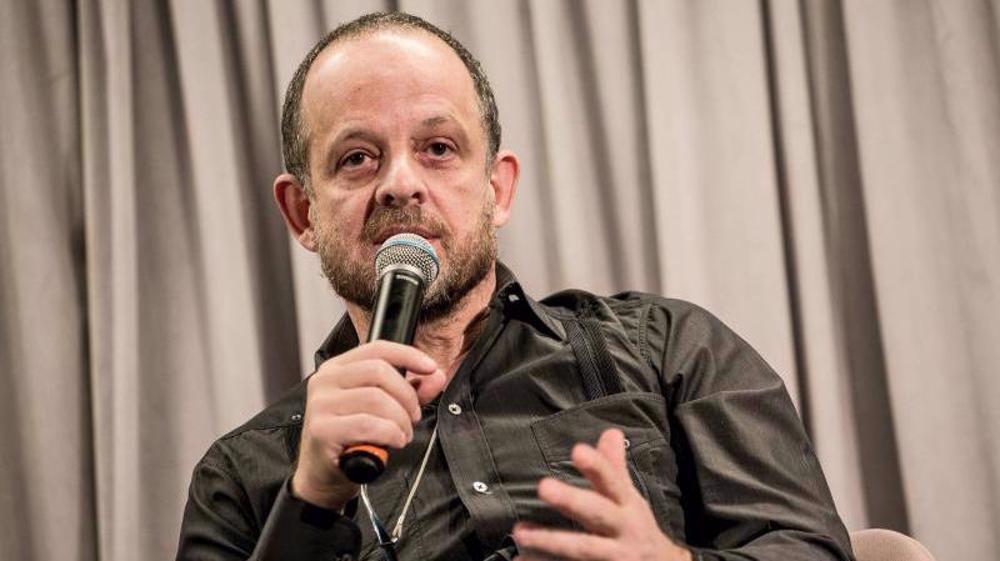Large indigenous rally held in Brazil against expected ruling in land rights case
Large streams of indigenous protesters, carrying bows and arrows and wearing traditional headdresses, have flooded the streets of the Brazilian capital to express their opposition to an expected ruling by the Supreme Court that could eliminate reservations on their ancestral lands.
An estimated 6,000 indigenous people set up a protest camp outside of the Supreme Court in Brasilia in advance of an expected ruling that could eliminate protected status for some native lands and open the indigenous people’s ancestral lands to agribusiness and mining.
The rally, considered by organizers to be the biggest indigenous protest ever held in Brazil, involved the members of 170 ethnic groups.
Demonstrators were also protesting systematic persecution under far-right President Jair Bolsonaro, who assumed power two years ago.
“This government is attacking indigenous peoples. Today, all humanity is calling for the Amazon rainforest to be protected. But the government wants our rainforest, the lungs of the planet, to be replaced by soybeans and gold mining,” said Syrata Pataxo, a 32-year-old chief of the Pataxo people from the northeastern state of Bahia.
The protest rally was held peacefully, unlike a similar one held in June, when demonstrators clashed with police, leading to the injury of at least three protesters and the wounding of three police officers with arrows.
The Supreme Court is to decide about how constitutional protections for indigenous lands are to be enforced.
The proponents of agribusiness in those lands argue that protections should not apply to those lands that were uninhabited in 1988, when Brazil’s constitution was ratified and ensured native land protections.
In contrast, indigenous rights activists argue that the constitution mentions no such cut-off date, and that native inhabitants were often expelled from their ancestral lands, particularly in the 1950s, when they were forced from their lands by tobacco farmers and miners and as a result of logging operations. Now that they have returned, they say, they should enjoy the constitutional right.
The case involves a reservation in the southern state of Santa Catarina but, according to experts, it will set a legal precedent for similar cases across the country.
Environmentalists argue that protecting indigenous reservations is one of the best ways to halt the deforestation of the Amazon, which is considered a critical resource in the fight against climate change.
Bolsonaro has threatened that “chaos” would ensue if the top court does not rule in favor of the 1988 cut-off.
Earlier this month, an indigenous organization in Brazil called on the International Criminal Court (ICC) to investigate Bolsonaro for purported “genocide” and “ecocide”, claiming that he has persecuted native peoples and destroyed their homelands.
Green groups have blamed Bolsonaro’s policies for repeated wildfires in the Amazon, accusing him of stripping power and resources from the agencies that are meant to enforce environmental protection. They say the Brazilian leader has been refrained from adequately enforcing changes to prevent the Amazon from burning.
The Amazon, which occupies about 49 percent of Brazil’s territory, is considered as a crucial buffer against climate change. The rainforest is also extending into Colombia, Peru, and other South American countries.
Hamas hails Gaza’s victory over Israel in genocidal war, its forcing enemy to agree to ceasefire
'Capitulation': Israeli officials and media concede Gaza defeat as truce unfolds
'Gaza has won': Social media users react to ceasefire with mix of relief, joy
Iran seeks South Korea’s assistance for AI, fiber-optic projects
VIDEO | Iran's 'Eqtedar' (Power) maneuver
Israel hits HTS military target in Syria for 1st time since fall of Assad
VIDEO | Press TV's news headlines
Israel has slaughtered 13,000 students in Gaza, West Bank











 This makes it easy to access the Press TV website
This makes it easy to access the Press TV website